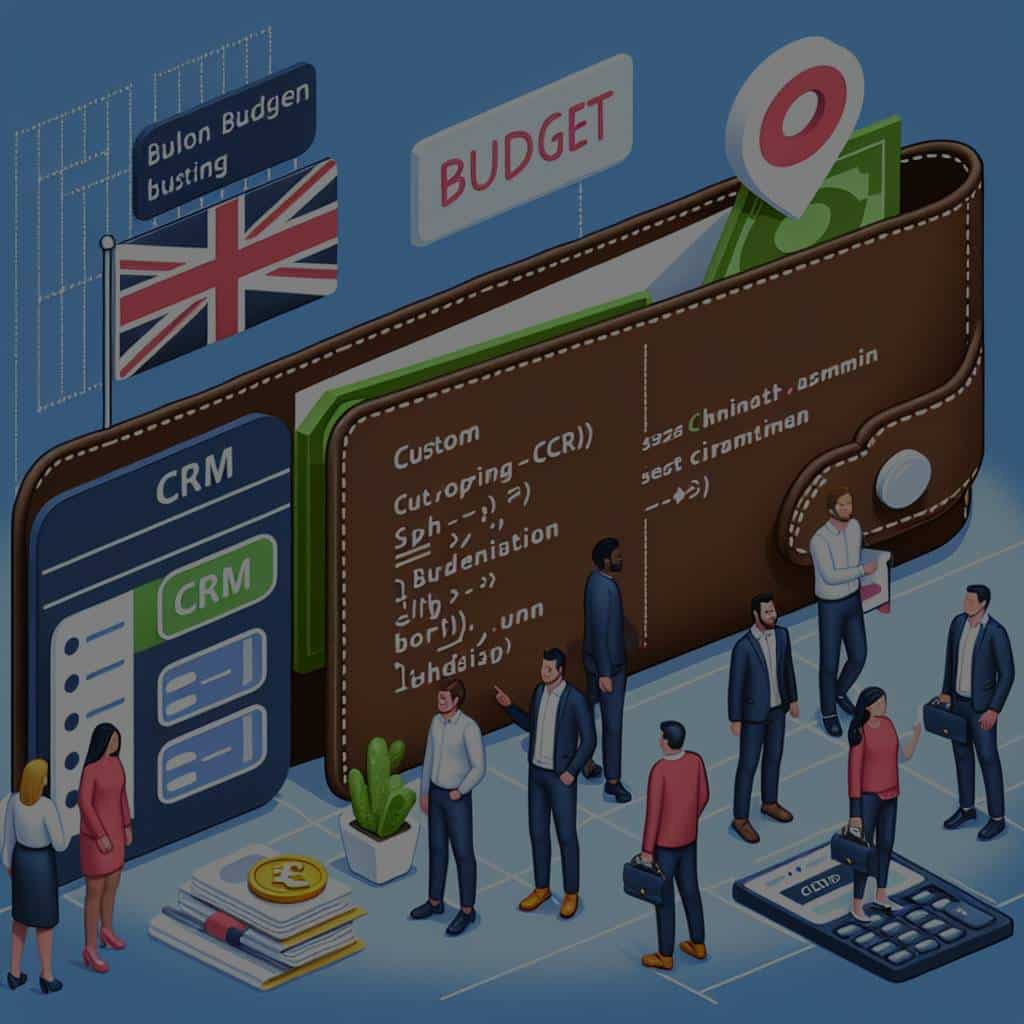How to Develop a Custom CRM for a UK Small Business on a Tight Budget?

Embracing modern technology and tools is a crucial step towards attaining business growth and success. One such tool is a Customer Relationship Management (CRM) system that forms the backbone of business operations, especially for small businesses. It is a software tool that helps businesses organise and manage interactions and relationships with customers. However, small businesses, particularly in the UK, often grapple with tight budgets, making it challenging to invest in a robust CRM system. This article explores how to develop a custom CRM for a small UK business on a tight budget.
Understanding CRM and its Importance
CRM, or Customer Relationship Management, is a strategy that businesses adopt to manage their interactions with their customers. At its core, CRM is a software system that helps collect, organise, and manage customer data, streamline sales, automate marketing, and enhance customer service.
A lire en complément : What Are the Essential Skills for Data Science in the UK Finance Sector?
For a small business, investing in a CRM system can be a game-changer. It can help you provide better user experience, monitor customer interactions, improve sales, and ensure effective marketing. It’s essentially a tool that can assist in improving every aspect of your business. Furthermore, having a custom CRM, tailored to your business’s unique needs, will boost your productivity, and help you make informed decisions about your business operations.
Identifying Business Needs and CRM Features
Before you plunge into developing a custom CRM, it is crucial to identify your business needs and the features that will serve these needs best. These features could include contact management, email integration, sales forecasting, lead management, and analytics, among other things.
A découvrir également : What Are the Best Practices for Preventative Maintenance in UK Manufacturing SMEs?
When you understand your business needs, you are better equipped to plan the CRM system that best suits your business. For instance, if your business relies heavily on email marketing, your CRM should have a robust email integration feature. If your sales team frequently interacts with customers, the CRM should have a user-friendly interface and efficient contact management.
Choosing the Right CRM Development Platform
The choice of platform for your CRM system plays a significant role in the overall cost of development. Some platforms are free, while others come with specific licensing costs. Hence, it’s crucial to choose the right platform that aligns with your budget and business needs.
There are several CRM platforms available like Zoho, HubSpot, and Salesforce, among others, that offer free plans for small businesses. However, these free plans come with limited features, and you might have to upgrade to a paid plan to access more advanced features. Therefore, weigh the pros and cons of each platform before making a decision.
Building a Team for CRM Development
Having the right team to develop your CRM is crucial to its success. Whether you plan to have an in-house team or outsource your CRM development, it’s essential to ensure that your team has the right skill set necessary for CRM development.
You will need a project manager, software developers, designers, and testers. An effective team will ensure the simultaneous development and testing of the software, reducing the overall time and cost of development.
Implementing and Testing the CRM System
Once your custom CRM is developed, it’s time to implement it in your business operations. Start by training your team on how to use the CRM effectively. A well-implemented CRM system will ensure that all your customer data is centralised, making it easier for your team to access and use it.
Next, you need to test the system to ensure that it’s working as expected. Testing helps identify any bugs or errors in the system that could affect its performance. It’s recommended to conduct thorough testing before fully integrating the CRM system into your daily business operations.
In conclusion, developing a custom CRM for your small business on a tight budget is achievable. It requires strategic planning, selecting the right platform, and building an effective team. With the right approach, a custom CRM will provide a significant return on investment for your small business.
CRM System Maintenance and Upgrade
The route to success for a small business does not end with the development and implementation of a custom CRM system. It also involves the constant maintenance and upgrade of the CRM software to ensure it continues to meet your business needs and remains compatible with evolving technologies.
Maintenance of a CRM system includes regular checks for system bugs, software updates, database optimisation, and security monitoring, among other things. This ensures that your CRM software is always running efficiently and securely, giving you peace of mind and allowing you to focus on other aspects of your business.
Upgrades, on the other hand, are about enhancing the features and functionalities of your CRM software to match your growing business needs. As your business expands, you may need additional features, such as advanced analytics or multi-channel customer support. Regular upgrades ensure your CRM system remains relevant and continues to provide value to your business.
The cost of maintenance and upgrades can significantly affect your budget. However, there are ways to manage this. You may consider a subscription-based CRM system where, for a monthly or yearly fee, the vendor takes care of maintenance and upgrades. Zoho CRM, for instance, offers a variety of plans that cater to different business needs and budgets.
Alternatively, if you have an in-house team, consider training them to handle maintenance and upgrades. This will not only save you money but also enhance your team’s skills and knowledge about the CRM system. It’s crucial, therefore, to factor in the cost and strategy for maintenance and upgrades when planning for a custom CRM for your small business.
Conclusion: Achieving Success with a Custom CRM on a Tight Budget
Developing a custom CRM for a small business on a tight budget is a challenging yet rewarding endeavor. By understanding the importance of CRM and identifying your business needs, you can choose the right CRM development platform and build an effective team for CRM development.
The process doesn’t stop at implementing and testing the system. Regular maintenance and upgrades are also key to ensuring your CRM software remains efficient and relevant to your business needs. While this may seem like a substantial investment, especially for a small business, the benefits that a bespoke CRM system offer, such as improved customer service, efficient sales and marketing, and informed decision-making, far outweigh the costs.
Therefore, as a UK small business, investing time and resources in the development of a custom CRM, despite a tight budget, can provide a significant return on investment. It’s all about smart planning, choosing the right platform, assembling an efficient team, and carefully considering your future needs. And remember, there’s no one-size-fits-all approach to CRM. What works best for your business is a CRM system tailored to your specific needs and budget. That’s the true power of a bespoke CRM system.
